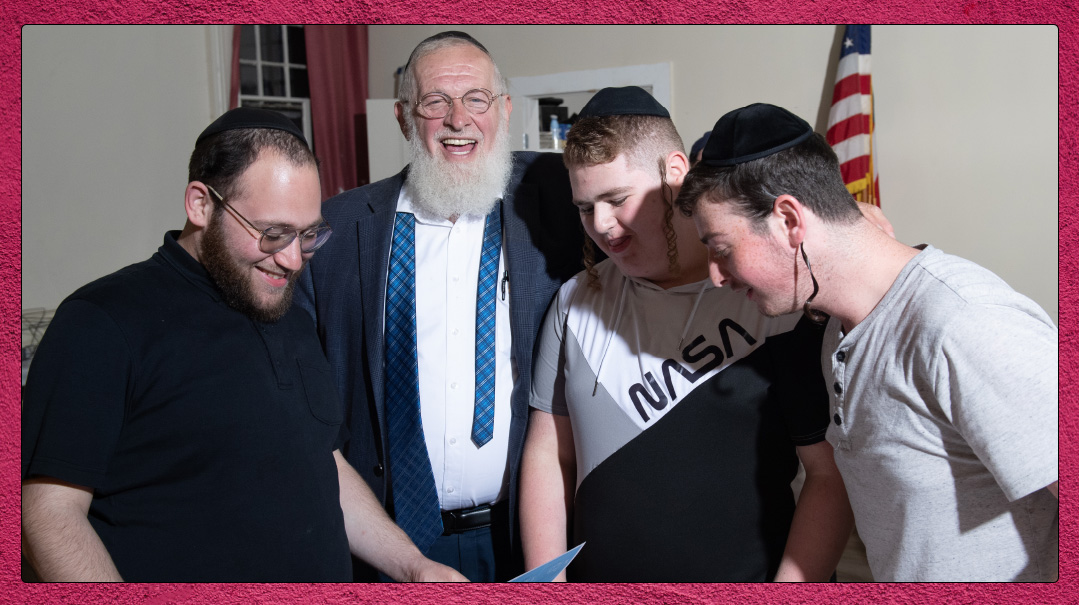Heart of the Matter

While others may see jeans and piercings, for Benjie and the other men behind Lev Teen Center, it’s always about neshamos

Photos: Jeff Zorabedian
A cool Tuesday evening found me driving along the winding lanes and rolling hills of scenic Monsey, New York. For a city slicker like me, I might as well have been in Montana.
Zipping down Viola Road, I hung a right at Number 161, turning onto a spacious expanse of land surrounding a building that looks like it could pass for a countryside church. Half a year ago, it was. That’s when a big-hearted dreamer named Benjie Brecher bought it and turned it into the new home of the Lev Teen Center.
The metaphor of the converted church — turning the profane into the something so precious and holy — is an apt one for Lev Teen, which has been a vehicle of transformation for countless chassidic teens in the Monsey area. For the past seven years, the center has been a home and a haven for kids who need one. And now it, too, has a home of its own.
I spent several hours at the center that night, and here’s what I saw: No amazing miracles. Nothing.
Nothing but kids being kids. Tons of food, lots of schmoozing and chilling — mainly chilling — and a night seder, and Maariv in the mix, too.
And that’s the Lev Teen miracle. It’s a place where kids whose lives have been filled with dislocation and dysfunction can go to spend time on an island of genuine acceptance, sometimes for the first time ever.
The kid who’s been through seven elementary schools and five high schools — in tenth grade. The boy from a home broken beyond repair who’s been living in a tent in the woods — and not because he’s into camping. The top bochur in a top yeshivah who slowly slid way down and out the door of Yiddishkeit — while no one had the faintest clue why.
Every boy here has had far too much drama in his young life, often due to trauma in the family — death, divorce, jail, you name it — and needs a place where he can just be, and belong. Amid all the craziness, they’re desperate for a bit of normalcy. And Lev Teen Center is Normal City.
Here, no one bats an eyelash when a boy walks in with curled peyos and a buzz cut, along with a multicolored yarmulke — or none at all. The lingua franca for almost all of them is Yiddish, but the conversations are a far cry from what one hears on the streets of Williamsburg or Monsey.
But however a boy might dress or talk or act, he’s met with neither shock, condemnation, nor coddling, just unquestioning affirmation. He’s allowed to be who he is — and the lack of reaction is itself a great healing balm for a wounded soul. And ever so slowly, it starts the process of coming back home.
Mechy Brandwein, who helped run programs in Lakewood’s Minyan Shelanu teen program for seven years and is now doing the same at Lev Teen Center, observes, “Our basic philosophy is that every human being has a fundamental need to belong. So, give them a nonjudgmental place to belong, and which along the way promotes good values — and they’ll be happy there. There’ll be no reason to walk out.
“No one ever walked out of here because it was too frum for them. You know why? Because the frumkeit wasn’t forced on them. We’ve never shied away from being frum; in fact, we are unapologetically, proudly, very frum. But we don’t preach, we don’t coerce and we don’t insist. It’s just who we are.”
Oops! We could not locate your form.







